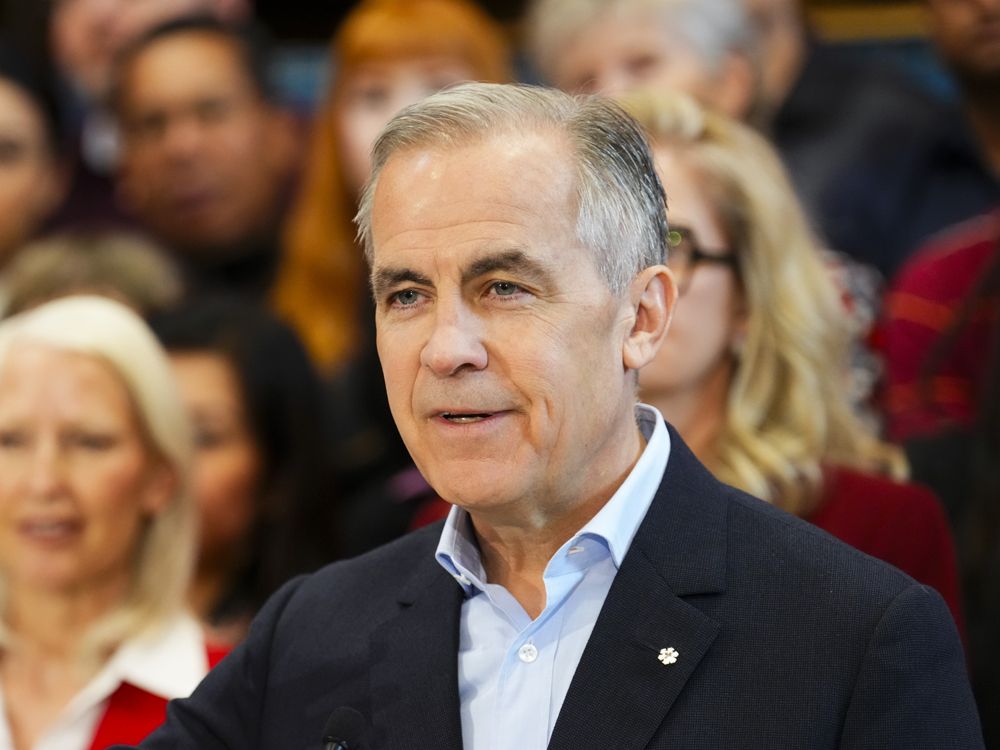Source says Ontario looking to raise and expand foreign buyer tax early in new year
Article content
Those looking for Ottawa to announce significant new measures to address housing affordability in Tuesday’s fiscal update were out of luck, though the government said the issue was a “priority” and that it would take more action in the spring budget.
Advertisement
This advertisement has not loaded yet, but your article continues below.
Article content
“We know housing prices are a real concern, especially for those in the middle class looking to buy their first home,” the government said in its fiscal update. “We will take further action in the upcoming budget.”
The Liberals had included a pledge in their April 2021 budget to implement a one-per-cent tax on vacant and underused property, a tax that is due to go into effect on Jan 1. The fiscal update described consultations made through the Department of Finance between Aug. 6 and Sept. 17 this year. During the election campaign in September, the party promised to expand on it with a two-year foreign homebuyer freeze intended to curb speculative investing.
The Liberal platform also included a blind bidding ban as part of a strategy to promote transparency in real estate transactions and a plan to invest in 1.4 million home units over four years. The measures were mentioned but not directly advanced in Tuesday’s update.
Advertisement
This advertisement has not loaded yet, but your article continues below.
Article content
On Monday, BNN Bloomberg had reported that a “senior Ontario government source” had indicated the province would hike its own foreign homebuyer tax to 20 per cent from 15 per cent if Ottawa did not raise the national tax rate.
A senior government source from Ontario’s Ministry of Finance told Financial Post that the department is looking to act early in the New Year to increase and expand the non-resident speculation tax (NRST) to encompass the entire province and not just the Greater Golden Horseshoe Region (GGH).
The department issued a release following the fiscal update calling on continued partnership with the federal government against the pandemic, citing housing affordability as a critical issue.
“That is why our government is prepared to act on housing affordability, including addressing foreign speculation in the province’s real estate market and we are calling on the federal government to do the same,” wrote Ontario finance minister Peter Bethlenfalvy in the release.
Advertisement
This advertisement has not loaded yet, but your article continues below.
Article content
Bethlenfalvy also said that the lack of housing affordability measures in the update was a “missed opportunity”, during a televised interview on BNN Bloomberg on Wednesday.
Ontario’s non-resident speculation tax went into effect in April 2017 . Ontario’s then-Premier, Kathleen Wynne, called the Toronto market “a frenzy” that needed to be calmed down.
Ontario’s foreign buyer tax previously affected those who are not citizens or permanent residents of Canada, as well as foreign companies looking to purchase in the Greater Golden Horseshoe Region. The region ranges from the Niagara municipality, to the City of Peterborough, and includes cottage country areas such as the Kawartha Lakes.
Other provinces have also rolled out foreign buyers taxes. In B.C., non-residents have to pay a 15 per cent property transfer tax since 2016.
Advertisement
This advertisement has not loaded yet, but your article continues below.
Article content
Apart from working fiendishly to incentivize more development, the best thing Ottawa can do is wait for rate hikes
Rob McLister, a mortgage analyst
However, market watchers questioned whether the move on its own could address affordability problems in the country’s hottest markets.
“The foreign buyers tax has had no impact on the marketplace. It’s basically seen as a cost of doing business,” said Christopher Alexander, senior vice-president at real estate firm RE/MAX, told the Financial Post. “All the reports and research that we have done is they’re not making up a huge portion of sales. I think this is, in my opinion, a politically motivated move.”
Alexander added that over the past few years that the tax had been in place, home prices have still risen dramatically.
“Too much government strategy has been focused on curbing demands and it’s got to get like some point we’re gonna have to tackle our supply challenges,” he said.
Advertisement
This advertisement has not loaded yet, but your article continues below.
Article content
Rob McLister, a mortgage analyst, said in an e-mailed response that the foreign homebuyer tax undoubtedly curbed foreign housing investment, though there’s no evidence that it had a direct impact on affordability. McLister added that would-be foreign buyers simply shifted their buying interest to markets such as Montreal which had no equivalent measures.
“(Hiking the NRST from 15 to 20 per cent is) like turning a furnace down from 30 C to 29 C. You wouldn’t notice a difference,” McLister wrote, adding that the move could be moot if the federal government does ban foreign buyers for two years as proposed.
Advertisement
This advertisement has not loaded yet, but your article continues below.
Article content
“Pre-COVID stats suggested that foreign buying in the GTA could be less than two per cent,” McLister said, referencing an investigation from the CBC.
“This whole discussion is just one more distraction from the conversation we should be having, which is, how do we build homes faster than the growth in household formation?” he said.
As market watchers await the new measures in the Spring budget, McLister and Alexander said the focus should be on the supply-side of the market, as well as a few other measures.
“To significantly dampen housing demand with policy, you’d need something equivalent to major mortgage restrictions, like materially lower maximum debt ratios, banning 30-year amortizations, a significantly higher mortgage stress test rate, a higher down payment minimum,” McLister wrote.
“Apart from working fiendishly to incentivize more development, the best thing Ottawa can do is wait for rate hikes.”
• Email: shughes@postmedia.com | Twitter: StephHughes95
Advertisement
This advertisement has not loaded yet, but your article continues below.
More action to address hot housing coming in budget, Ottawa says — but some are getting impatient
2021-12-15 16:56:18






